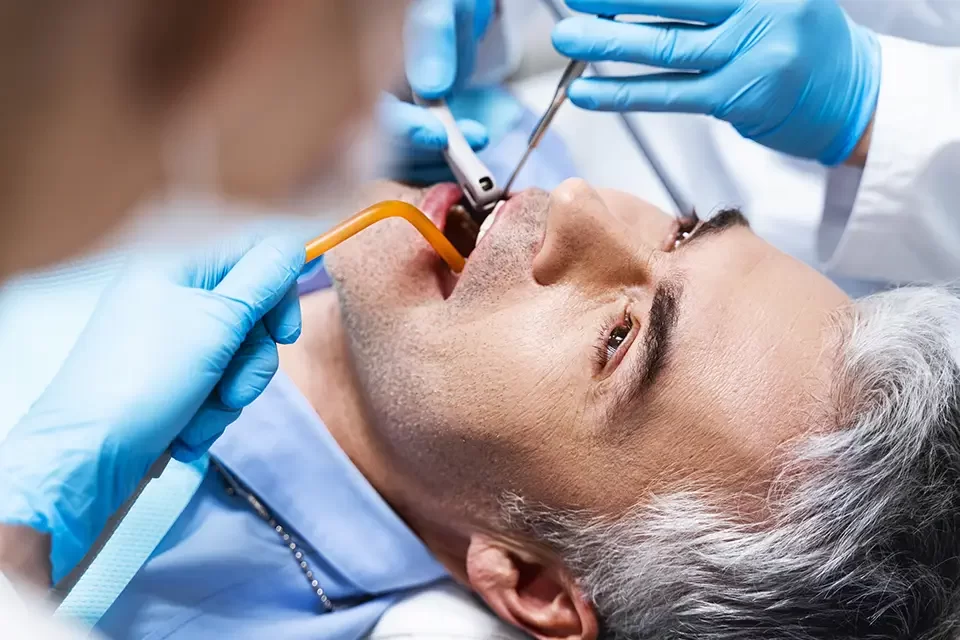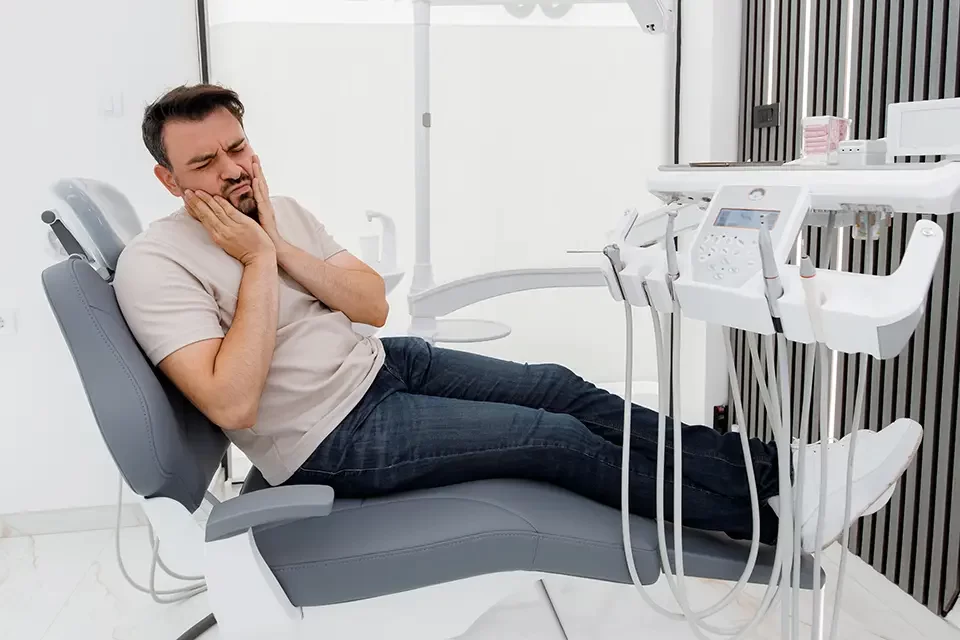There are few dental terms that can cause as much immediate anxiety as “root canal.” For years, this procedure has been unfairly associated with pain, but the reality is quite the opposite. A root canal is not the cause of pain; it is the solution to it. It is a highly effective, tooth-saving procedure designed to relieve the severe pain caused by a deep tooth infection. But how do you know if your toothache is just a minor issue or one of the signs you need a root canal? At FIFTH ST Dental in Etobicoke, we believe that understanding your body’s warning signals is the first step toward getting the care you need. Ignoring these symptoms will not make them go away; it will only allow the problem to get worse. This guide will walk you through the seven most common signs you need a root canal, helping you know when it’s time to pick up the phone and schedule a visit.
Protect your smile with advanced Root Canal Treatment services
Understanding What a Root Canal Actually Is
Before we dive into the symptoms, let’s quickly demystify the procedure itself. Inside every tooth, under the hard enamel and dentin layers, is a soft tissue called the pulp. This pulp contains the tooth’s nerves and blood vessels. When a deep cavity, a crack, or trauma allows bacteria to get into this pulp, it can become infected and inflamed. This is what causes the intense pain. A root canal treatment is the process of carefully removing this infected pulp, disinfecting the inside of the tooth, and then filling and sealing it to save the tooth from extraction.

The Telltale Signs You Need a Root Canal
If the pulp of your tooth is infected, it will send out some clear distress signals. Recognizing these signs you need a root canal is crucial for getting timely treatment and preventing the infection from spreading.
1. Persistent, Severe Tooth Pain
This is the most common and obvious symptom. We’re not talking about a fleeting sensitivity, but a deep, throbbing, or continuous pain in a specific tooth. The pain might be constant, or it might come and go, but it will be significant enough to disrupt your day.
2. Extreme Sensitivity to Hot and Cold
While many things can cause sensitivity, one of the key signs you need a root canal is when that sensitivity lingers. If you take a sip of a hot coffee or a cold drink and the sharp pain in your tooth lasts for more than a few seconds, it often indicates that the nerve inside is damaged.
3. Pain When You Touch the Tooth or Eat
If your tooth is acutely painful when you apply pressure—either from your finger, from biting down, or from chewing—it is a strong indicator of a problem. This often means the infection has spread to the ligaments and bone surrounding the root tip.
4. A Small, Pimple-Like Bump on Your Gums
Have you noticed a small, recurring bump on your gums near a painful tooth? This is often a fistula or a dental abscess. It’s a sign that the infection inside the tooth has created a pocket of pus and is trying to drain out. This is one of the most definitive signs you need a root canal.
5. Swollen or Tender Gums
Even without a visible pimple, the gum tissue around an infected tooth may become noticeably swollen, tender to the touch, or puffy. This is a sign that the infection is beginning to affect the surrounding tissues.
6. Darkening of the Tooth
An infection can cut off the blood supply to the tooth, causing the pulp inside to die. When this happens, the tooth itself can take on a grayish or dark discoloration. This is another one of the clear signs you need a root canal.
7. A Chipped or Cracked Tooth
If you have a tooth with a deep crack or a significant chip from an injury, it can create a direct pathway for bacteria to reach the pulp. If you have a damaged tooth that is also causing you pain, it is a very strong signal that you need to have it evaluated immediately.

What to Do if You Recognize Signs You Need a Root Canal
If one or more of these symptoms sound familiar, it is essential that you do not ignore them. These signs you need a root canal are your body’s way of telling you that there is a serious infection that requires professional attention. An untreated tooth infection can lead to a severe abscess, bone loss, and can even spread to other parts of your body.
Conclusion
The idea of a root canal can be intimidating, but the procedure itself is a modern, comfortable, and highly successful treatment. It is designed to get you out of pain and save your natural tooth for years to come. The real enemy is the infection, not the treatment. By learning to recognize the signs you need a root canal, you can take proactive control of your oral health and get the care you need before the problem escalates.
At FIFTH ST Dental, our experienced and compassionate team is here to help our Etobicoke community find relief from dental pain. We use modern techniques and a gentle approach to ensure your comfort from start to finish.
Signs You Need a Root Canal: Ready to Get Out of Pain?
If you are experiencing any of the signs you need a root canal, please do not wait. Contact our Etobicoke office today to schedule an urgent appointment. Let us help you find relief and restore your oral health.
Frequently Asked Questions (FAQs)
1. Is a root canal treatment a painful procedure?
No. This is the biggest misconception in dentistry. The procedure is performed under effective local anesthesia, so you will not feel any pain. The purpose of a root canal is to relieve the severe pain caused by the infection.
2. What happens if I ignore the signs I need a root canal?
Ignoring the symptoms will allow the infection to worsen. This can lead to the formation of a painful abscess, the destruction of the bone around the tooth, and eventually, the need to have the tooth extracted.
3. Will I need a crown after my root canal?
In most cases, yes. After a root canal, the tooth can become more brittle. A dental crown is placed over the tooth to protect it from fracturing and to restore its full strength and function.
4. How long does a root canal treatment take?
A root canal is typically completed in one or two appointments, depending on the complexity of the case. Each appointment usually lasts about 60 to 90 minutes.





